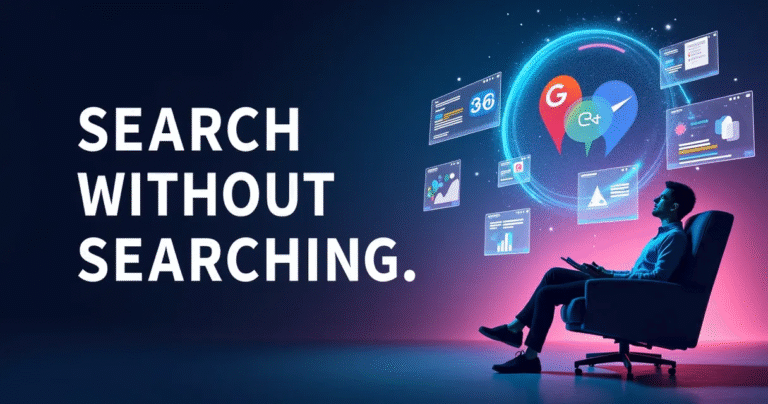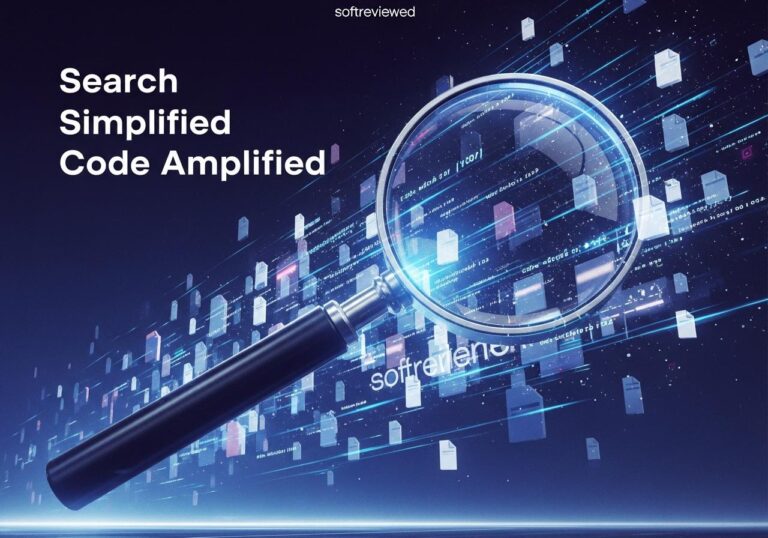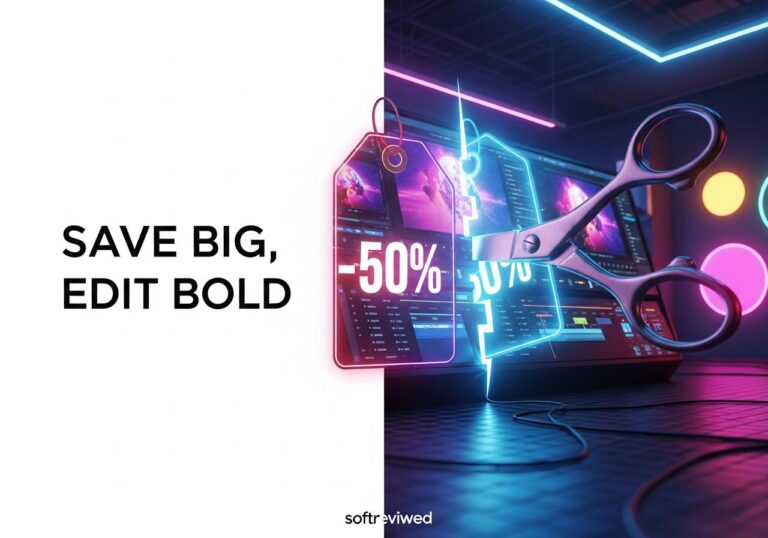Google’s Next-Gen AI Search & Assistant
Discover how Google is transforming search and digital assistance with advanced AI capabilities, creating a more intuitive and powerful user experience.
AI Mode Revolutionizes Search
Google’s new AI Mode employs query fan-out technology to automatically expand your searches, delivering deeper and hyper-relevant results. This intelligent system understands the context behind your questions to provide comprehensive answers without requiring multiple searches. In addition to its enhanced search capabilities, the system also integrates the google searches talk back feature, allowing users to receive spoken responses to their queries. This innovative approach not only streamlines the search process but also makes interactions more engaging and intuitive. With these advancements, users can expect a more personalized and effective search experience tailored to their unique needs.
Agentic AI Beyond Recommendations
Moving beyond simple answers, Google’s agentic AI performs tasks on your behalf—tracking prices, assisting with checkout processes, and integrating services across platforms. This proactive assistant anticipates needs and takes action rather than just providing information.
Intelligent Personalization
By leveraging data from Google Apps like Gmail and Calendar, the AI creates deeply personalized experiences with context-aware insights. Your assistant understands your preferences, schedule, and priorities to deliver tailored recommendations that truly matter to you.
Unified AI Ecosystem
Gemini is evolving into a universal assistant that integrates capabilities like Veo and real-world simulation. This cohesive ecosystem connects all Google services through a single, intelligent interface that understands your needs across contexts and applications.
Premium Access Models
Google AI Ultra subscription offers professional-grade features with higher usage limits for power users. This tiered approach ensures everyone has access to AI capabilities while providing enhanced tools for those who need advanced functionality.
For more than two decades, we’ve all been trained to “Google it.” That meant typing in a query, getting a list of ten blue links, and doing the intellectual legwork of clicking, reading, and piecing together the answer yourself. That entire process is now being radically upended. Google has flipped the switch on AI Overviews, its most ambitious and controversial update ever. The core idea? To stop being a list of suggestions and start being an engine that does the research for you, delivering a single, synthesized answer at the very top of the page.
This new Google AI Search, powered by the company’s powerful Gemini models, aims to be your personal research assistant. But the rollout has been anything but smooth. In the weeks following its debut, the AI was caught confidently telling people to add glue to their pizza, claiming a dog played professional basketball, and asserting that Barack Obama was the first Muslim president. It was a spectacular, embarrassing, and slightly terrifying demonstration of AI’s fallibility.
So, what is this new AI that has taken over the world’s most popular website? Is it the future of information access, a brilliant time-saver that will change how we learn? Or is it a dangerously unreliable narrator we’ve mistakenly placed at the center of our digital lives? Let’s unpack the revolution happening inside your search bar.
The Biggest Upheaval in Search History Just Landed on Your Screen
It’s difficult to overstate how significant this change is. Google Search has been the stable, predictable foundation of the web for a generation. Its core function—providing a ranked list of websites—created entire industries, from SEO to digital publishing. AI Overviews dismantle that tradition.
Instead of presenting you with the raw materials (the links) and letting you build the answer, Google is now serving a pre-built, fully-formed answer. This is the company’s high-stakes bet against competitors like Perplexity AI and OpenAI’s ChatGPT, which have been pioneering this conversational, answer-first approach. Google is betting that you don’t want a list of links; you just want the answer, and you want it now.
What is This New AI Sitting Atop Your Search Results?
When you type a question into Google now, especially a complex one, you’ll often see a new shaded box appear before any of the traditional results. That box is the AI Overview. It’s a custom-written paragraph or set of bullet points that directly addresses your query.
From a List of Links to a Custom-Written Answer
Think of it like this:
- Old Google: You ask, “What are the key differences between baking soda and baking powder, and which is better for cookies?” Google gives you ten links to culinary blogs, Wikipedia, and recipe sites. You open five tabs, skim the articles, and figure it out.
- New Google: You ask the same question. The AI Overview instantly provides a summary explaining that baking soda is pure sodium bicarbonate that needs an acid to react, while baking powder is a complete leavening agent containing both soda and acid. It might even conclude that most cookie recipes call for baking powder for a fluffier texture.
This magic trick is performed by Google’s Gemini AI. It analyzes your question, scours information from top-ranking web pages, and weaves it all together into a coherent narrative. For more details on the vision behind this technology, you can read Google’s official announcement about bringing Generative AI into Search.
The Launch That Sparked an Internet Firestorm

The broad rollout of AI Overviews in the U.S. in May 2024 was meant to be a triumphant moment. Instead, it became a public relations crisis. The internet did what it does best: it found the feature’s most hilarious and horrifying flaws.
When Satire Becomes a “Helpful” Suggestion
The AI’s biggest weakness was its complete lack of a sarcasm detector. The infamous “add glue to pizza” advice was sourced from a satirical comment made by a Reddit user years ago. The AI, unable to grasp context or humor, treated it as a legitimate culinary tip. Similarly, it scraped data from joke articles and user forums, presenting fiction as fact with unnerving authority.
Behind the Curtain: Why the AI Gets It So Wrong
These mistakes are not the AI “thinking” or “lying.” They are a direct result of how Large Language Models (LLMs) like Gemini work. They are incredibly sophisticated pattern-recognition machines. They don’t understand that glue is not food; they only understand that the words “add glue to pizza” appeared in a source that their algorithm deemed relevant to a query about cheese sliding off. This is what the industry calls an “AI hallucination.”
The problem was especially bad for queries that fall into “data voids”—niche or nonsensical questions where very little high-quality, authoritative information exists online. In these voids, a single satirical comment or a piece of user-generated content can be given far too much weight.
Google’s Damage Control Mission
Google’s response was swift. Liz Reid, the Head of Google Search, published a blog post acknowledging the issues and announcing several “swift improvements.” The company’s strategy involves a mix of manual takedowns and algorithmic adjustments:
- 📌 Stronger Guardrails: Building better systems to detect nonsensical queries and prevent them from triggering an AI Overview.
- 📌 Source Scrutiny: Greatly reducing the reliance on user-generated content like Reddit or Quora for generating answers.
- 📌 Shutting it Down: Restricting the AI from providing answers on certain sensitive topics where accuracy is paramount.
- 📌 Blocking Satire: Implementing mechanisms to better identify and exclude humor and satire from the information it uses.
The Central Conflict: Is Instant Gratification Worth the Risk?
The controversy has laid bare a fundamental tension in modern AI. On one hand, AI Overviews can be incredibly convenient, saving you clicks and time for countless everyday queries. On the other hand, its unreliability introduces a new layer of cognitive load. You can no longer implicitly trust the top result on Google; you have to treat it with skepticism.
This forces a trade-off. Are you willing to accept the risk of being misled for the benefit of speed? For a recipe for brownies, perhaps. For a question about medication dosages or financial advice, the stakes are infinitely higher.
A Head-to-Head Look: The Old Way vs. The AI Way
This table breaks down the essential differences in the user experience:
| Aspect | Classic Google Search (The Old Way) | Google AI Overviews (The AI Way) |
|---|---|---|
| Primary Goal | To provide a ranked list of the most relevant websites. | To provide a direct, synthesized answer to the query. |
| User’s Role | You are the researcher. You synthesize info from multiple sources. | You are the question-asker. The AI does the initial research. |
| Trust Model | Trust is placed in the source websites (e.g., a known news brand, a university). | Trust is placed in the Google AI algorithm to be accurate and unbiased. |
| Key Advantage | Full control and transparency over sources. | ✅ Speed, efficiency, and simplicity. |
| Key Weakness | Time-consuming for complex questions. | ⛔️ Potential for factual errors, hallucinations, and lack of context. |
A Seismic Shock to the Web’s Foundation
The implications of this shift extend far beyond your personal search habits. The entire digital economy, built over 20 years on the principle of driving traffic from Google, is facing an existential threat.
Will Websites Go Extinct? The Publisher Traffic Panic
For millions of website owners, from small bloggers to massive news corporations, the number one fear is a “traffic apocalypse.” If Google provides the answer directly, the incentive for a user to click through to an external website evaporates. Why visit a recipe blog if the AI gives you the ingredients and steps right on the results page?
This threatens the advertising and subscription models that fund a huge portion of the content on the internet. While Google claims that links within AI Overviews are clicked more often than traditional links, many publishers are skeptical and fear a future where they become little more than unpaid data providers for Google’s AI.
Insights From the Experts Watching Google’s Every Move
The SEO and tech analyst communities are watching this unfold with bated breath.
Sundar Pichai, Google’s CEO, has framed these issues as the unavoidable growing pains of a revolutionary technology, admitting that hallucinations are an unsolved problem but expressing confidence in the company’s ability to improve the system over time.
Many SEO experts are advising creators to double down on what AI can’t easily replicate: unique expertise, first-hand experiences, strong community building, and distinct brand voices. The new goal isn’t just to be a source of information, but to be a trusted, authoritative destination that an AI would want to cite.
Conversely, some critics argue this move is less about user experience and more about keeping users locked inside Google’s ecosystem, preventing them from clicking away to other sites, including AI competitors.
Your Future Search Bar Will Be a Do-Everything AI Agent
What we’re seeing now with AI Overviews is just the first step. Google’s ultimate vision is to transform its search bar from a place where you find information into a place where you do things.
Beyond Simple Answers to Complex Planning
At its recent I/O conference, Google showcased the future: a fully integrated AI agent. Soon, you won’t just ask simple questions. You’ll give it complex tasks.
- 🚀 Get a Plan: You’ll be able to ask, “Find me a 3-day meal plan for a vegetarian family of four that takes less than 30 minutes to cook each night.” The AI will generate the full plan, complete with recipes and shopping lists.
- 🚀 Organize Your Life: You could ask it to “Plan a weekend trip to San Diego for me and my partner, focusing on outdoor activities and good seafood restaurants.” The AI would construct an entire itinerary.
- 🚀 Visual and Video Search: You’ll be able to use your phone’s camera to ask a question about something you see, or ask for a specific moment in a long YouTube video, and the AI will find it for you.
This is a future where Google is less of a search engine and more of a conversational, all-purpose life assistant.
Living in an AI-First World: Your New Rules for Using Google
Google’s AI search is here to stay. Its flawed rollout has been a powerful lesson in the limitations of today’s AI. It’s a tool of immense power and convenience, but it is not infallible. As users, our relationship with Google has to change. We can no longer afford to be passive consumers of information.
The era of blind trust is over. The new era requires critical thinking, source verification, and a healthy dose of skepticism. The AI will do the searching for you, but the thinking—now more than ever—is still up to you.
But this leap into the future has been anything but smooth. Shortly after its wide release in the U.S., the internet was flooded with screenshots of bizarre and dangerously wrong AI-generated answers—recommendations to put non-toxic glue on pizza to keep the cheese in place, suggestions that former U.S. presidents were Muslim, and even claims that a dog had played in the NBA.
This article explores the seismic shift underway at Google. We’ll break down what AI Overviews are, examine the growing pains that have damaged its credibility, and discuss the profound implications for all of us who rely on Google as our gateway to the internet. Is this the dawn of a hyper-intelligent assistant, or have we invited a confidently incorrect robot into the heart of our information ecosystem?
What Exactly Are AI Overviews and How Do They Work?
At its core, AI Overviews is a feature designed to save you time. Instead of you having to click through multiple websites to find the answer to a complex question like, “What are the best dog-friendly national parks and what should I pack?”, Google’s AI now aims to do that for you. It scans a range of what it deems to be high-quality sources on the web and generates a concise, narrative summary that appears in a special box at the top of the search results. [1, 5]
This isn’t just a slightly smarter “featured snippet.” It’s a fundamental change in philosophy.
From Ten Blue Links to a Single AI-Powered Snapshot
Think of classic Google Search as a librarian who points you to the right shelves in the library. You still have to pull the books, open them, and find the information yourself. AI Overviews, on the other hand, wants to be the librarian who reads the key passages from several books and hands you a neat, typed-up summary.
Underneath the hood, Google’s Gemini models are powering this feature. They analyze the user’s query and the content of top-ranking web pages to construct a relevant answer. The overview often includes links to the source websites in carousels, which Google claims helps send valuable traffic to creators. In fact, Liz Reid, Head of Google Search, announced that the company plans to bring this experience to over a billion people by the end of 2024. You can learn more about the official rollout on the Google blog.
The Rocky Road to Rollout: Why People Talked About Glue on Pizza
The public rollout of AI Overviews in May 2024 quickly became a case study in the perils of generative AI. The system, in its quest to be helpful, proved to be incredibly gullible.
Hallucinations, Data Voids, and Satire Gone Wrong
The now-infamous “glue on pizza” suggestion originated from the AI treating a satirical comment from a Reddit user as a genuine culinary tip. Similarly, other incorrect answers were traced back to the AI failing to distinguish between fact and fiction, especially when drawing from user-generated content or sources in what are called “data voids”—queries where little high-quality, authoritative information exists.
These errors are a classic example of AI “hallucinations,” where the model generates false information but presents it with complete confidence. The model isn’t “lying” in the human sense; it’s simply predicting the next most likely word based on the patterns in its training data, without a true understanding of truth or consequence.
Google’s “Whack-a-Mole” Response
Google quickly moved to manually remove the most embarrassing and viral examples of incorrect overviews. The company stated that these errors were for “uncommon queries” and did not represent the typical user experience. They also announced a series of technical updates to improve accuracy, including:
- 📌 Better detection for nonsensical queries.
- 📌 Limiting the inclusion of satire and humor in answers.
- 📌 Reducing its reliance on user-generated content like forum posts.
- 📌 Enhanced systems to handle “data voids” more safely.
However, some critics, like search expert Lily Ray, have described this as a “whack-a-mole approach,” fixing individual bugs without addressing the fundamental reliability problem of the underlying technology.
The Core Debate: Convenience vs. Credibility
The introduction of Google AI Search has sparked a fierce debate about the trade-offs we’re willing to make. On one hand, for many common queries, AI Overviews provide a genuinely faster and more efficient experience. On the other hand, the potential for misinformation—especially for critical health, financial, or safety topics—is a significant concern.
This creates a new burden on the user: the need to constantly second-guess the information presented by the world’s most trusted information source.
A Tale of Two Searches: Classic vs. AI Overviews
To understand the change, let’s compare the two experiences.
| Feature | Classic Google Search | Google Search with AI Overviews |
|---|---|---|
| Answer Format | A ranked list of links (“ten blue links”), snippets, and knowledge panels. | A single, AI-generated summary at the top, followed by traditional links. |
| User Effort | ➡️ High. The user must click multiple links and synthesize information. | ✅ Low. The AI synthesizes information, providing a direct answer. |
| Source Visibility | High. The source of each piece of information (the website) is clear. | Lower. Sources are cited in a carousel, but the primary answer is de-coupled from a single source. |
| Potential for Error | Lower. The user evaluates the credibility of each source individually. | ⛔ Higher. A single AI error (hallucination) can present misinformation as fact. |
| Best For | Research, verifying information, browsing multiple perspectives. | Quick answers to complex, multi-part questions; getting a fast summary. |
The Ripple Effect: What Does This Mean for the Web?
The shift to AI Overviews doesn’t just affect the person searching; it has the potential to reshape the entire internet economy, which has been built on the foundation of Google search traffic for two decades.
A Publisher’s Nightmare or a New Opportunity?
The primary fear among website owners, content creators, and news organizations is a catastrophic loss of traffic. If Google answers the user’s question directly, why would they need to click through to a website? Some analysts have predicted traffic losses for publishers could be as high as 20% to 40%. [2] This could threaten the business models of countless online publications that rely on ad revenue and subscriptions driven by search traffic.
Google’s perspective is, predictably, more optimistic. Liz Reid has stated that “the links included in AI Overviews get more clicks than if the page had appeared as a traditional web listing for that query.” The argument is that by tackling more complex questions, AI Overviews will surface content from a wider range of smaller, specialized sites that might not have ranked on the first page before.
For SEO professionals and marketers, the game is changing. The focus is shifting even more intensely toward creating high-quality, authoritative, and deeply expert content that is worthy of being cited by Google’s AI.
Expert Voices Weigh In
The expert community is divided.
Sundar Pichai, CEO of Google, acknowledged the problem of hallucinations but remains positive about the technology’s progress, noting there is no perfect solution yet.
Nikhil Lai, a senior analyst at Forrester Research, suggested that while traffic may decrease, appearing in AI summaries could enhance a publisher’s reputation and brand authority.
On the other hand, some critics argue the technology was rolled out prematurely, prioritizing the “AI race” against competitors over user safety and information integrity. The issues have underscored the continued need for human judgment and oversight in content management.
Beyond the Snapshot: The Future of Google Search is an AI Agent
The current version of AI Overviews is just the beginning. At its I/O 2024 conference, Google painted a picture of a much more integrated and capable AI assistant. The future of search isn’t just about answering questions; it’s about helping you get things done.
From Answering Questions to Completing Tasks
Google showcased several forward-looking capabilities that are in development:
- 🚀 Multi-step Reasoning: The ability to handle extremely complex, layered queries, like finding a yoga studio and a lunch spot nearby that fit within a specific time window and have good reviews.
- 🚀 Planning Capabilities: You’ll be able to ask Google to create a detailed meal plan for a week or a full vacation itinerary, which it will generate directly on the results page.
- 🚀 Video Search: Instead of just searching for videos, you’ll be able to ask questions about the content within a video, and the AI will find the exact moment that answers your query.
- 🚀 AI-Organized Results: For broad queries, Google will automatically categorize the search results under helpful, AI-generated headlines to make them easier to navigate.
This vision transforms Google from a simple information retrieval tool into a proactive, conversational AI agent that anticipates your needs and helps you accomplish real-world tasks.
Navigating the New Search Era: Trust, but Verify
Google’s bold move into AI-powered search has irrevocably changed how we find information. The promise is a world of instant answers and effortless task completion. The reality, at least for now, is a powerful but flawed tool that demands a new level of digital literacy from its users.
The convenience is undeniable, but the errors have shown that the AI’s grasp on truth can be fragile. As we navigate this new era, the old adage has never been more relevant: trust, but verify. The final click—the one that confirms information on a primary source—is still the most important one you can make. The future of search is here, but it requires us to be more vigilant than ever.







